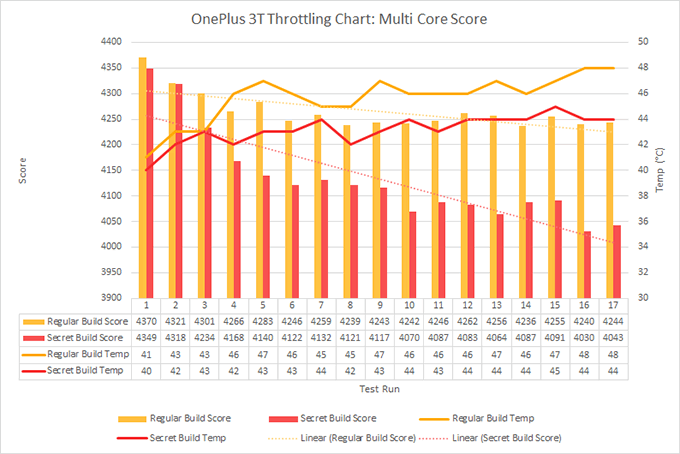- Qualcomm Launches Snapdragon 4 Gen 2 Mobile Platform
- AMD Launches Ryzen PRO 7000 Series Mobile & Desktop Platform
- Intel Launches Sleek Single-Slot Arc Pro A60 Workstation Graphics Card
- NVIDIA Announces Latest Ada Lovelace Additions: GeForce RTX 4060 Ti & RTX 4060
- Maxon Redshift With AMD Radeon GPU Rendering Support Now Available
OnePlus, Meizu Both Found To Have Tampered With Mobile Benchmark Results
You’d think at this point in time, companies would stop trying to pull a fast one over consumers, because so often, it just results in embarrassment, and potential damage control. But, as OnePlus and Meizu both remind us, if there are benchmarks, there is going to be benchmark cheating.
According to XDA-Developers, both OnePlus and Meizu implemented specific code that detected when certain benchmarks were run, so as to boost the CPU clock speed and produce better results. Ultimately, the differences overall were mild, but that only begs the question of, “What was the point?”

This issue was discovered with the help of Primate Labs, which develops the ultra-popular GeekBench benchmark. In tests, a renamed GeekBench was run on the devices, and not-so-surprisingly, the CPU boost didn’t apply, further proving that some trickery was going on.
To its benefit, OnePlus fessed-up, and said that its next major build will cease that behavior. It also said that even though the OP3 (non-T) also suffered from this, the launch models didn’t, which means that the results from our look at the phone last summer remain intact.
Still, while it’s great that a company would fess-up to cheating, when are companies going to learn that faking benchmarks is not going to go unnoticed?




